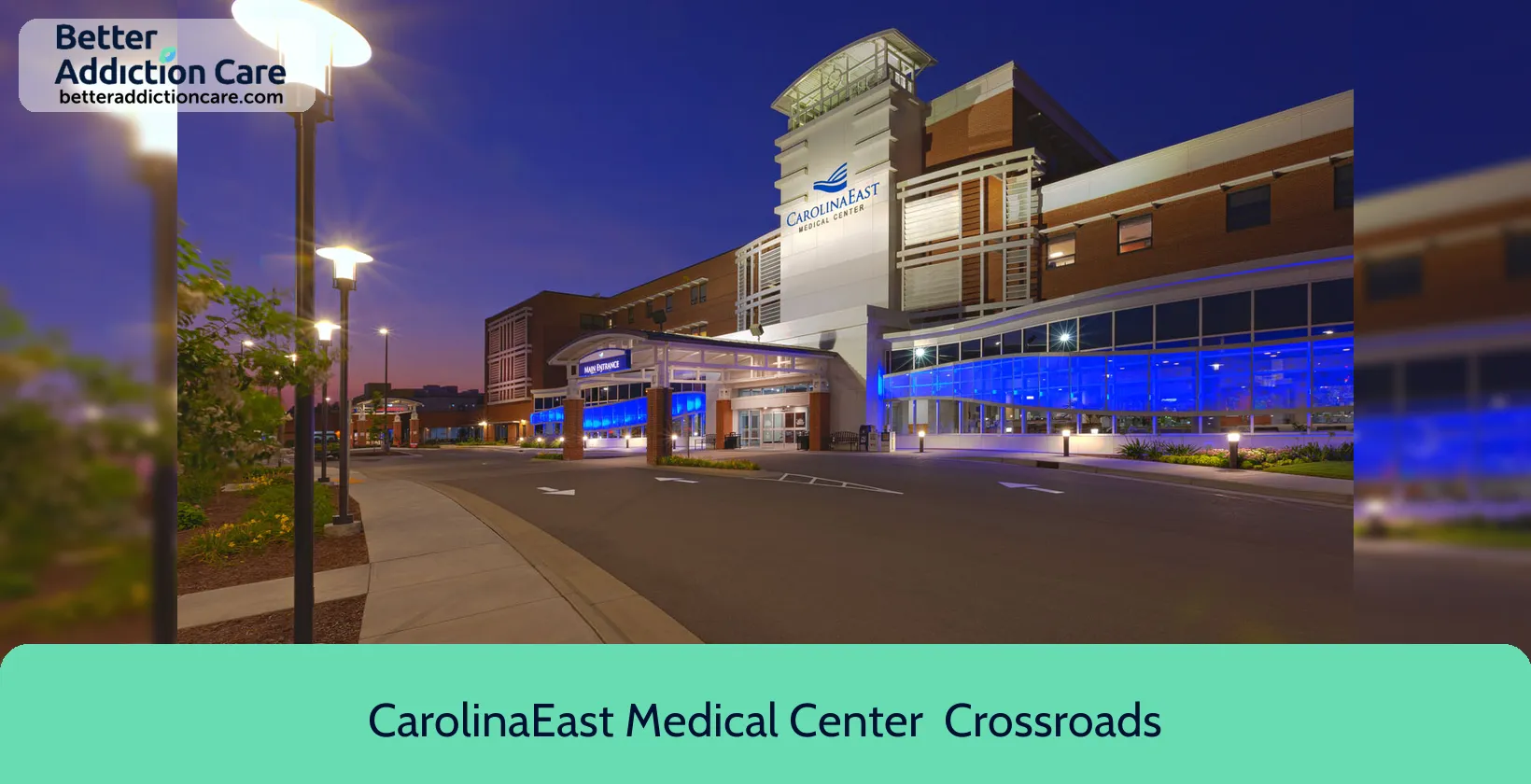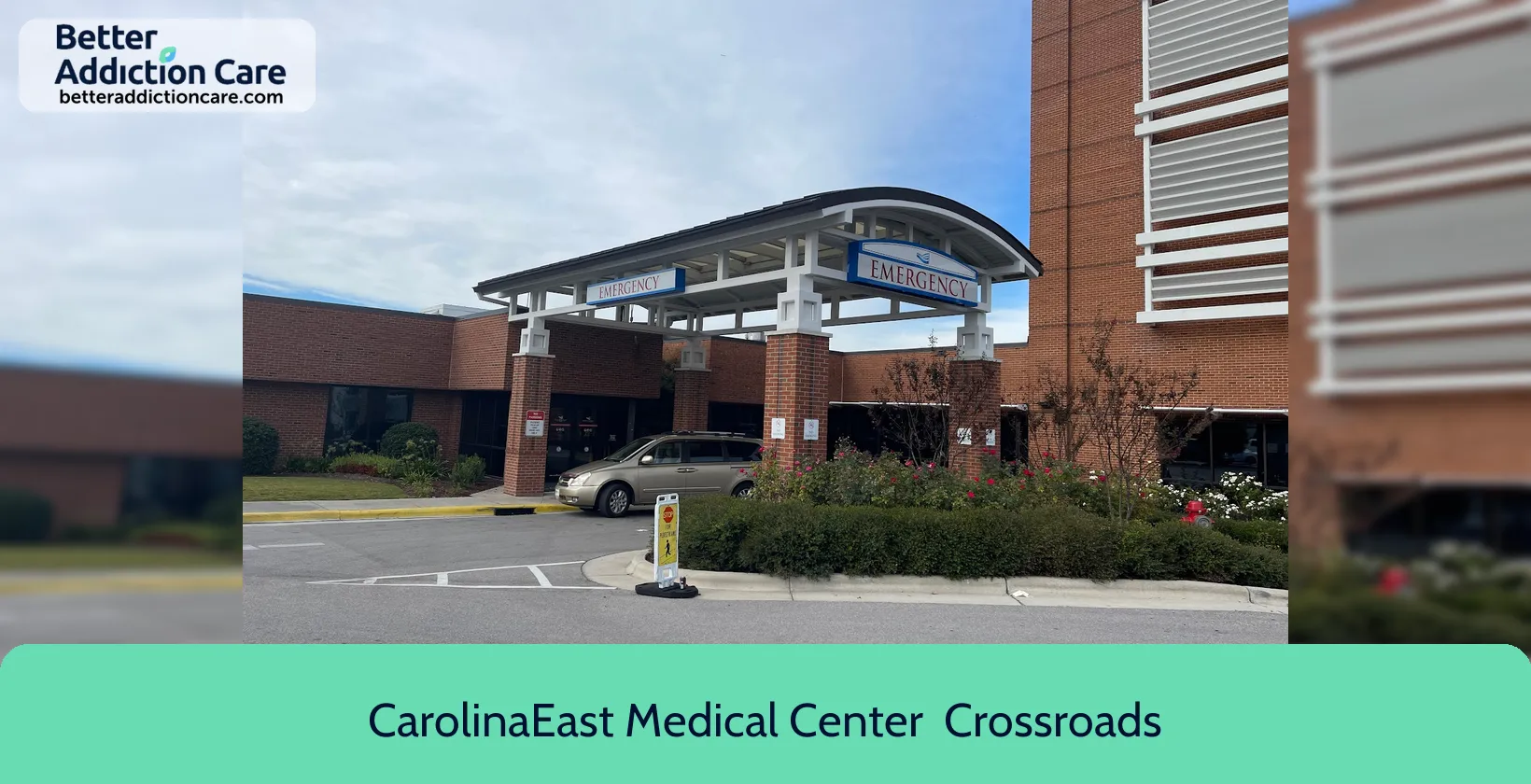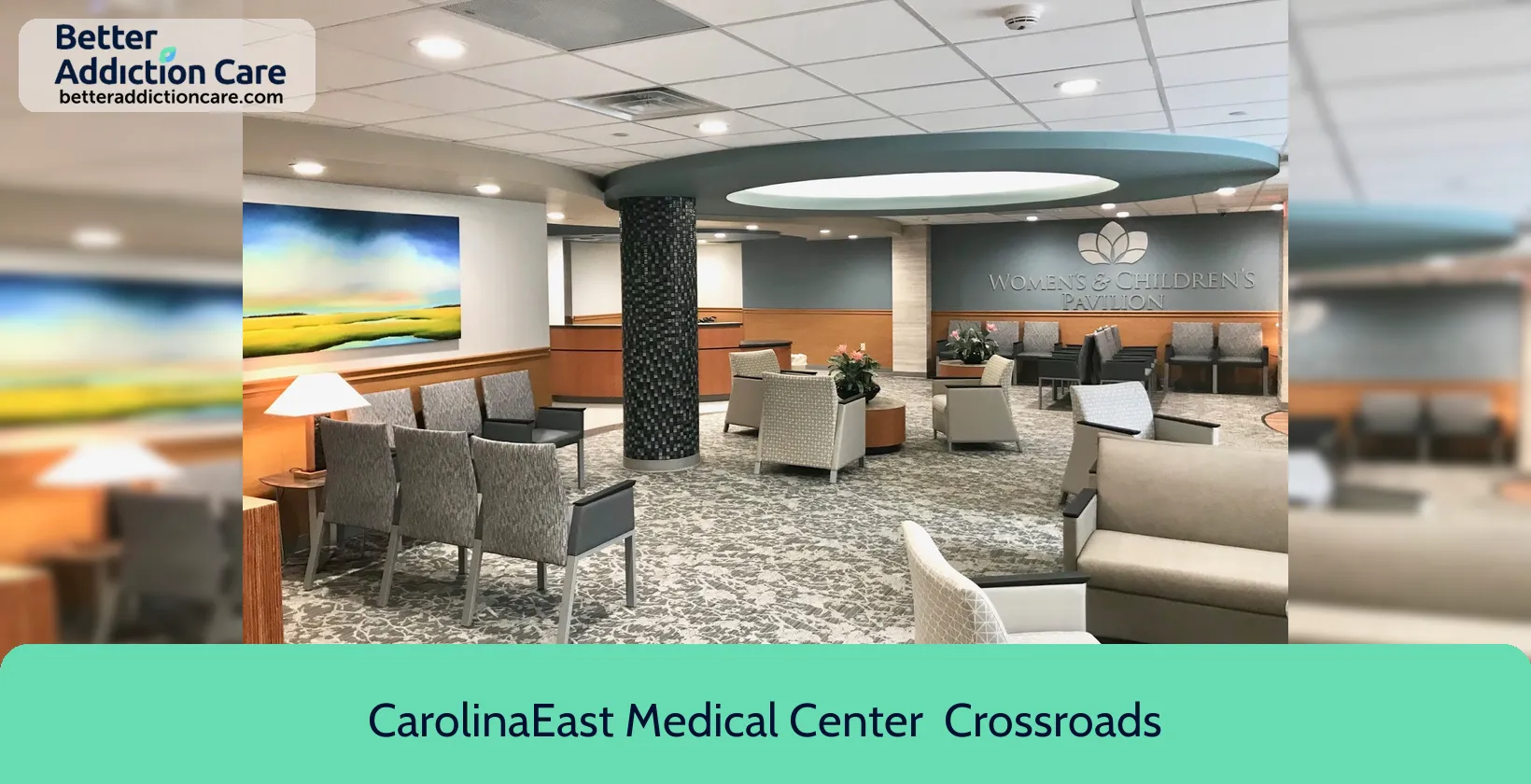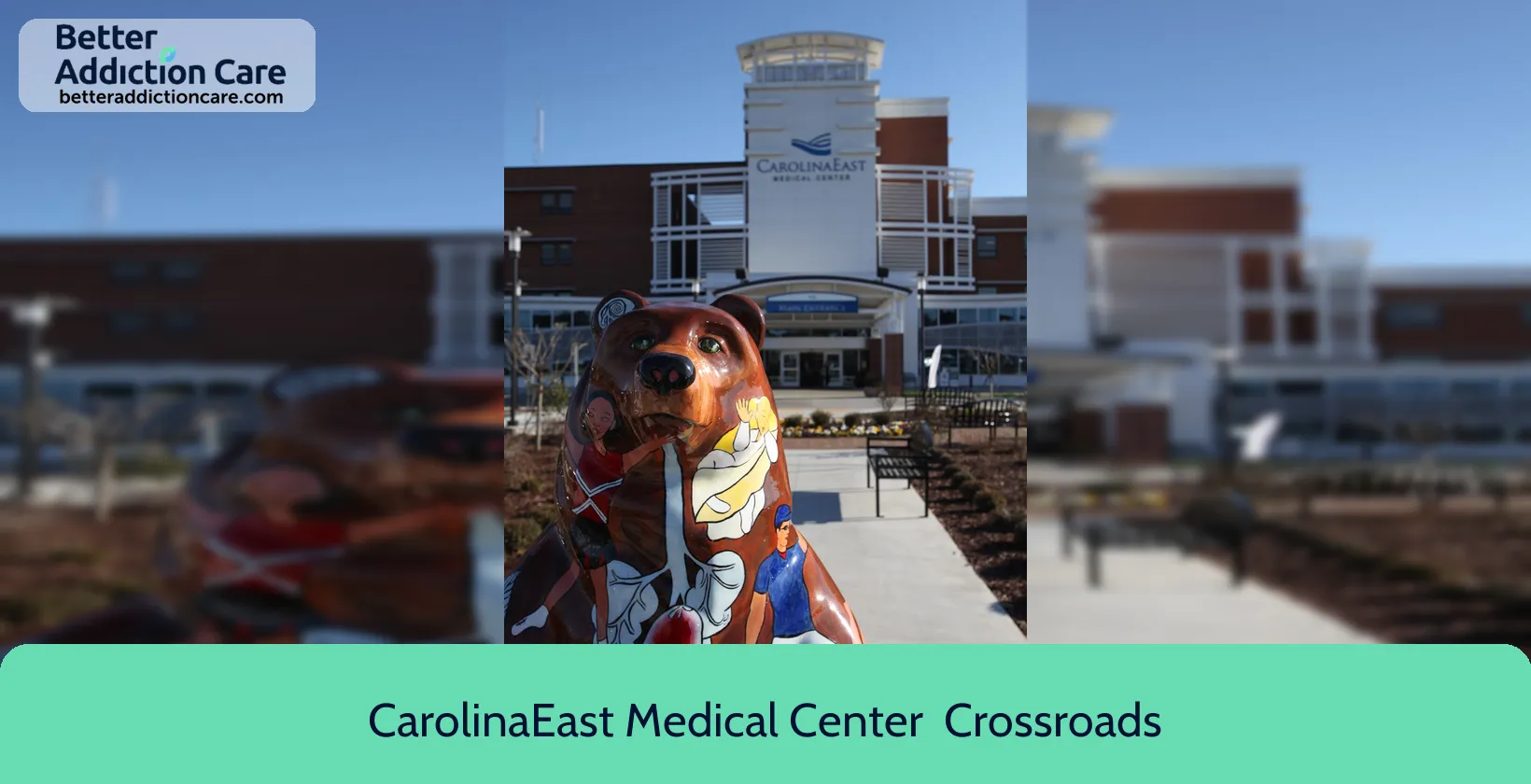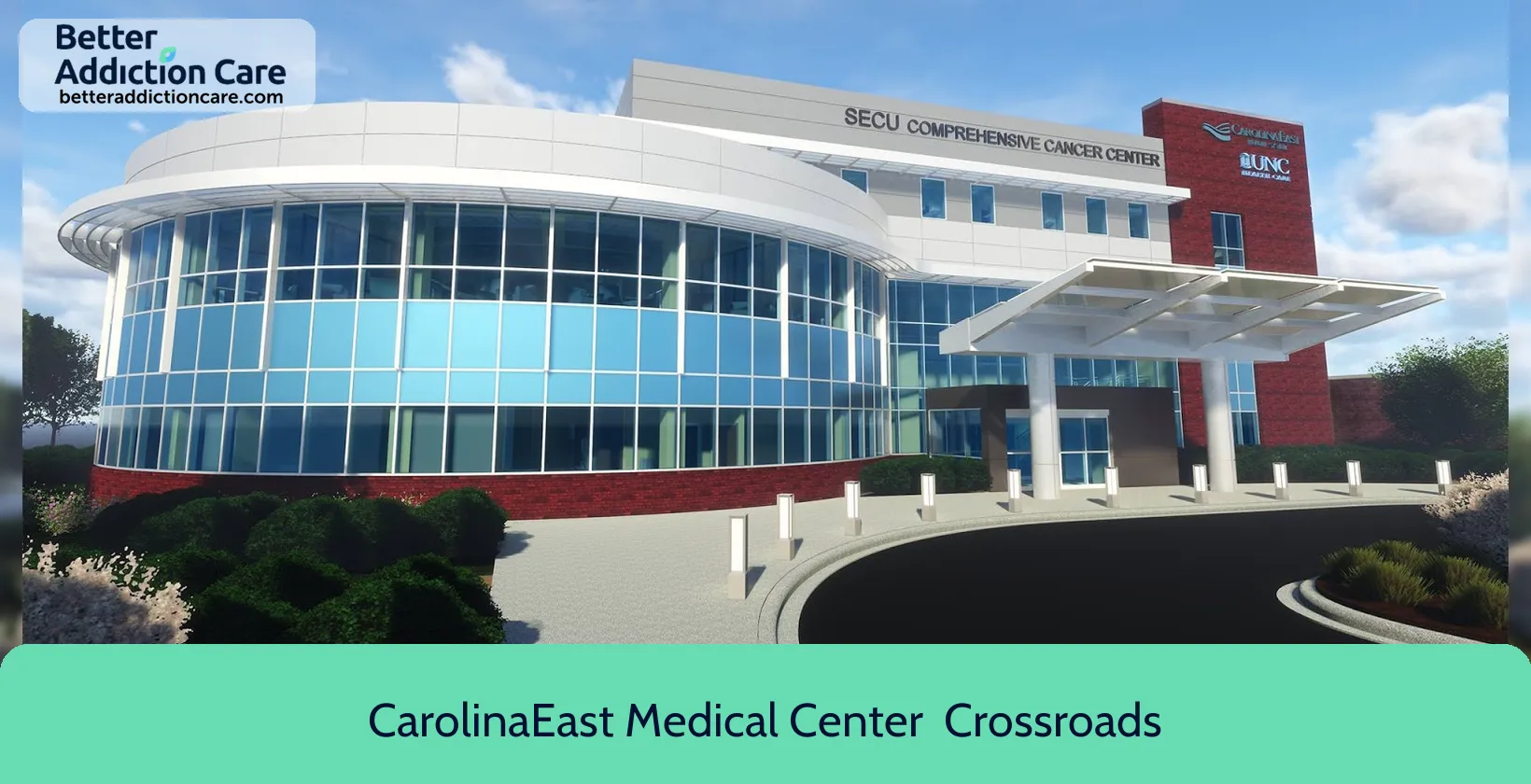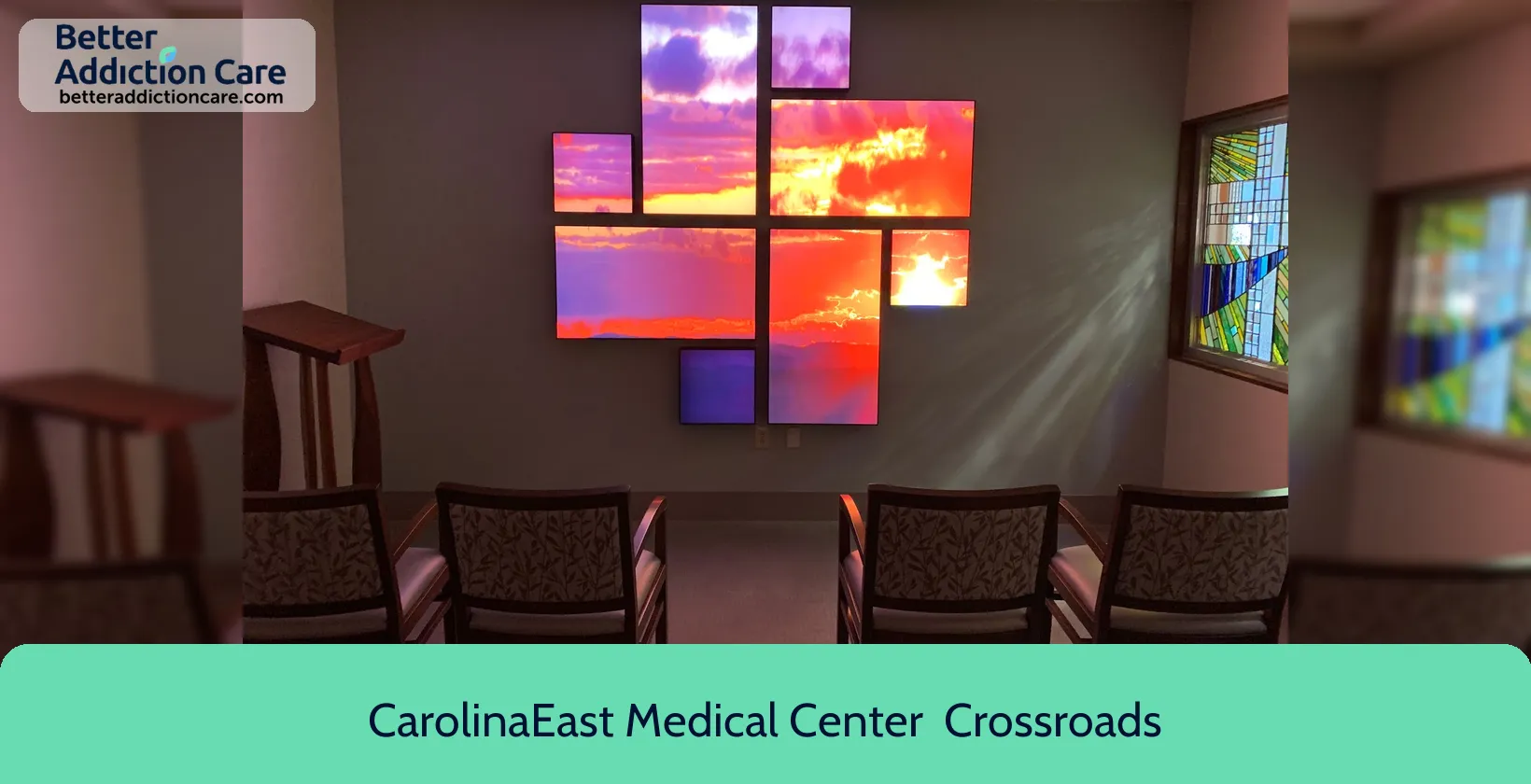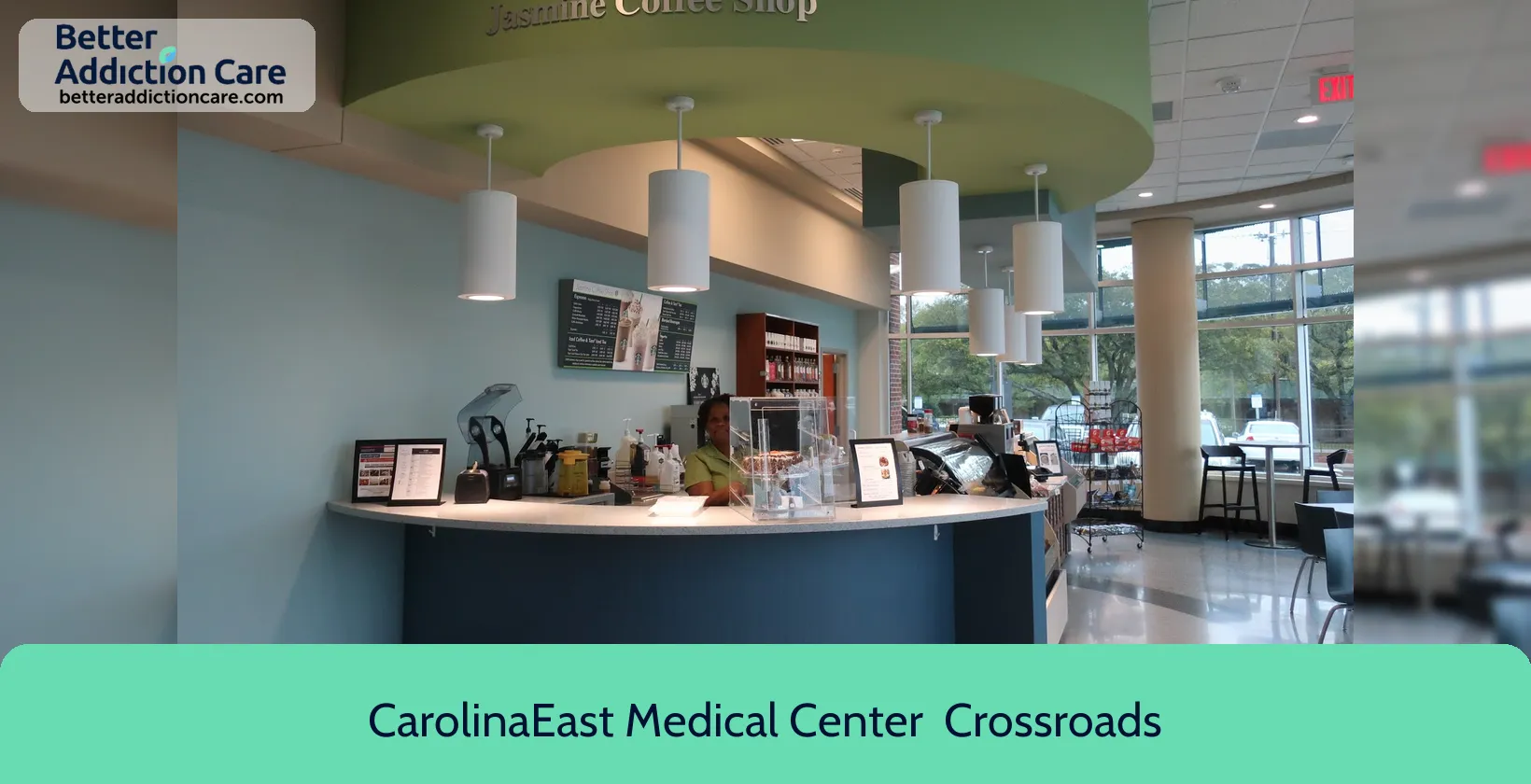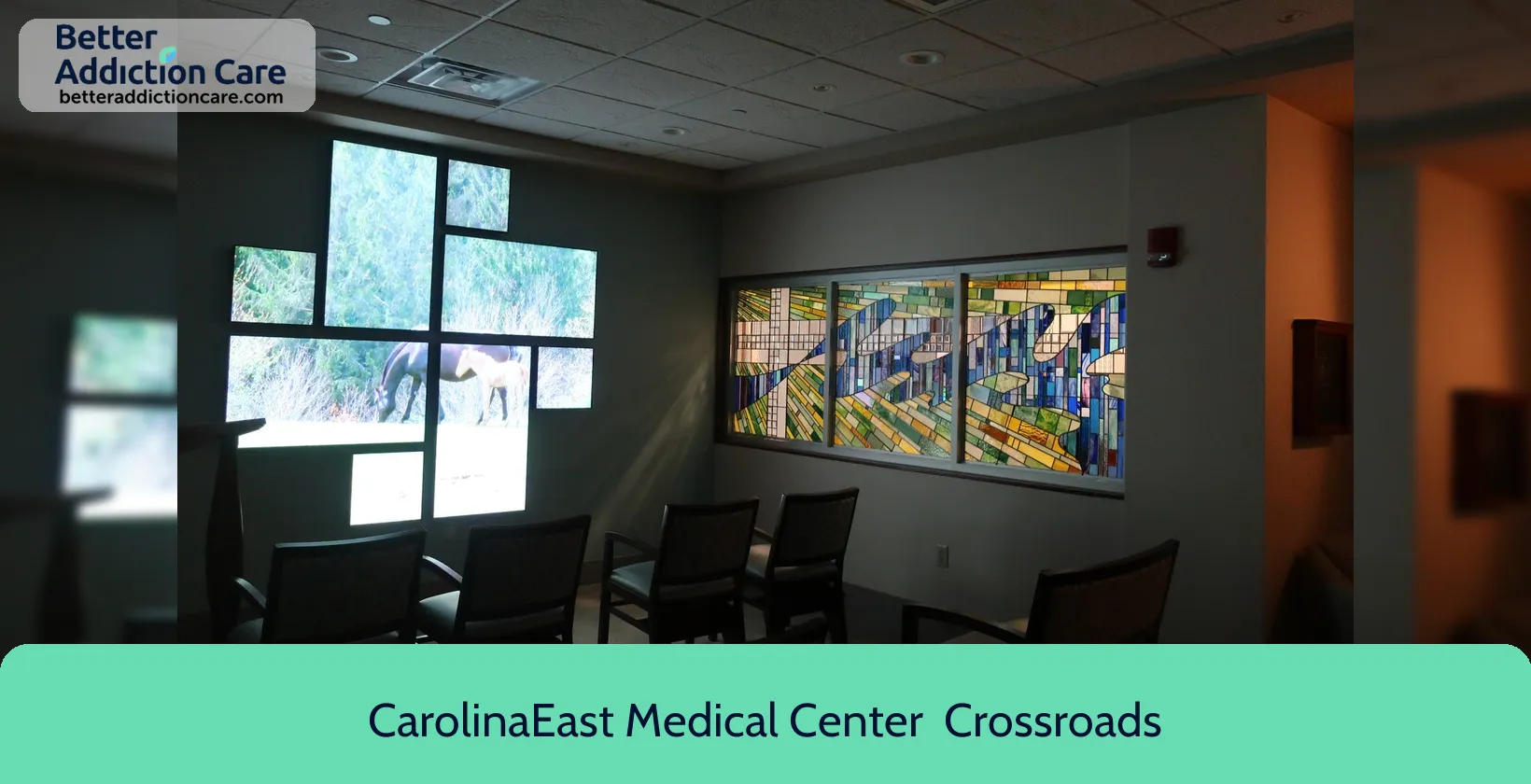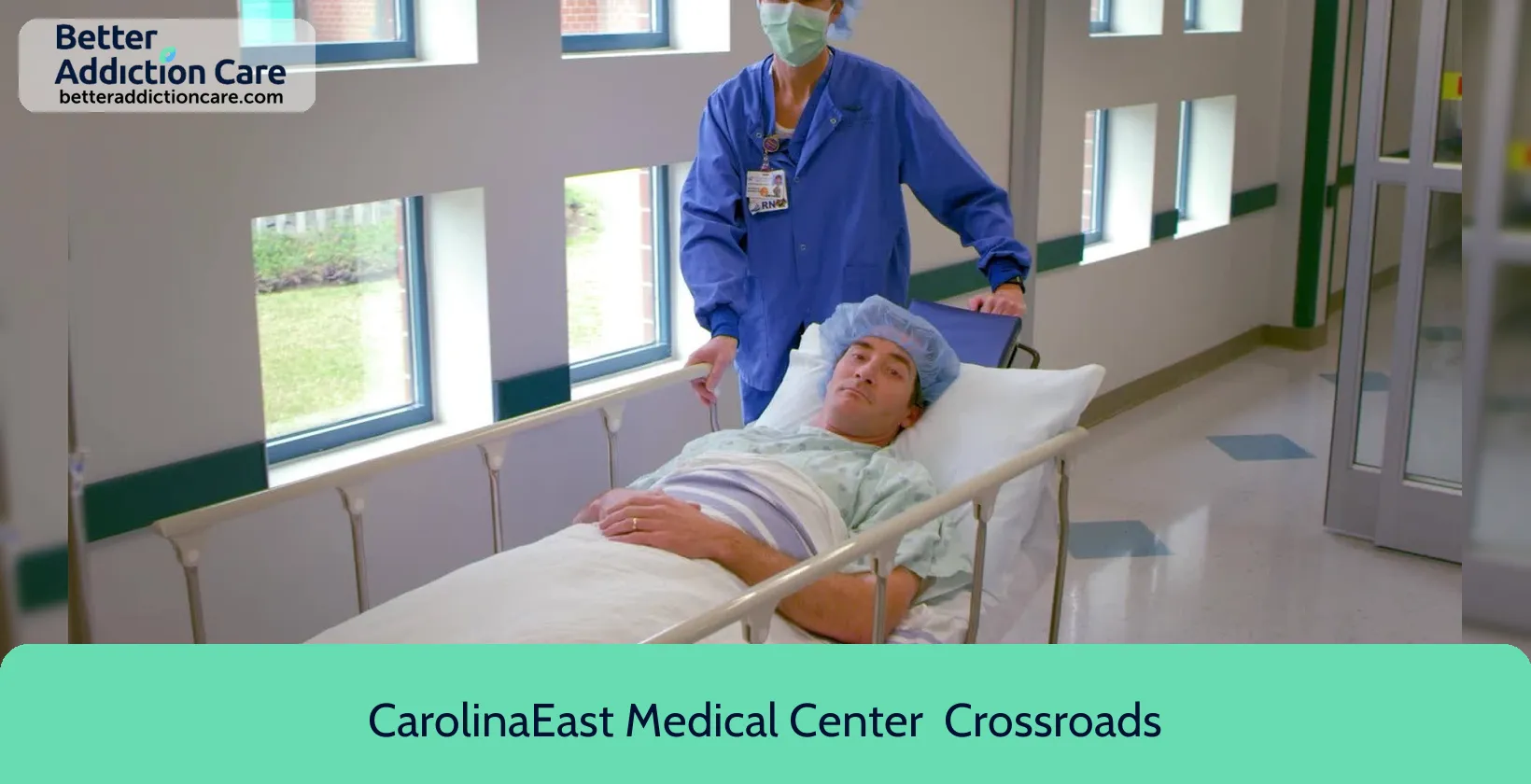CarolinaEast Medical Center - Crossroads Psychiatric Program
Overview
CarolinaEast Medical Center - Crossroads Psychiatric Program is a mental health treatment center for people seeking treatment near Craven County. As part of their treatment modalities for recovery, CarolinaEast Medical Center - Crossroads Psychiatric Program provides family counseling, individual psychotherapy, and dialectical behavior therapy during treatment. CarolinaEast Medical Center - Crossroads Psychiatric Program is located in New Bern, North Carolina, accepting private health insurance for treatment.
CarolinaEast Medical Center - Crossroads Psychiatric Program at a Glance
Payment Options
- Private health insurance
- Cash or self-payment
- State-financed health insurance plan other than Medicaid
- Medicare
- Federal military insurance (e.g., TRICARE)
Assessments
- Comprehensive mental health assessment
- Screening for tobacco use
- Comprehensive substance use assessment
Age Groups
- Adults
- Young adults
- Seniors
Ancillary Services
- Case management service
- Education services
- Family psychoeducation
- Suicide prevention services
Highlights About CarolinaEast Medical Center - Crossroads Psychiatric Program
6.93/10
With an overall rating of 6.93/10, this facility has following balanced range of services. Alcohol Rehabilitation: 8.16/10, Drug Rehab and Detox: 6.00/10, Insurance and Payments: 6.00/10, Treatment Options: 7.58/10.-
Alcohol Rehabilitation 8.16
-
Treatment Options 7.58
-
Drug Rehab and Detox 6.00
-
Insurance and Payments 6.00
Treatment At CarolinaEast Medical Center - Crossroads Psychiatric Program
Treatment Conditions
- Mental health treatment
- Alcoholism
- Substance use treatment
- Co-occurring Disorders
Care Levels
- Outpatient
- Hospital inpatient/24-hour hospital inpatient
Treatment Modalities
- Family counseling
- Individual psychotherapy
- Dialectical Behavior Therapy
- Group counseling
- Experiential Therapy
Ancillary Services
Languages
- Sign language services for the deaf and hard of hearing
Additional Services
- Pharmacotherapies administered during treatment
- Laboratory testing
Special Programs
- Clients who have experienced trauma
- Persons 18 and older with serious mental illness (SMI)
Contact Information
Read our Most Recent Article About Drug Addiction
DISCLAIMER: The facility name, logo and brand are the property and registered trademarks of CarolinaEast Medical Center - Crossroads Psychiatric Program, and are being used for identification and informational purposes only. Use of these names, logos and brands shall not imply endorsement. BetterAddictionCare.com is not affiliated with or sponsored by CarolinaEast Medical Center - Crossroads Psychiatric Program.
